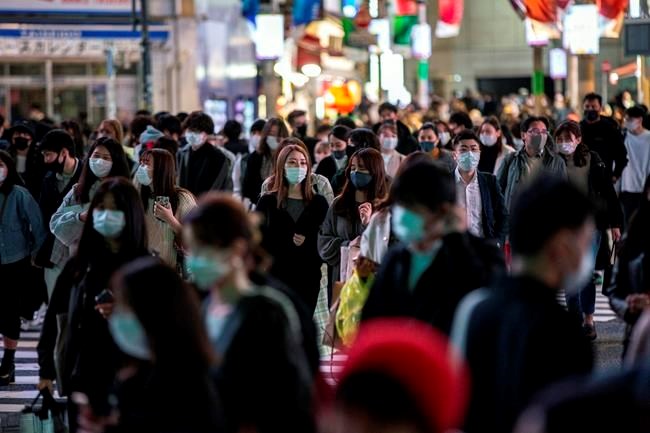TOKYO — Japan said Thursday it would end a monthslong state of emergency in the Tokyo area set up to curb the spread of the coronavirus, despite concerns the spring party season and next week’s Olympic torch relay could fuel a resurgence.
The emergency measures are set to be lifted on Sunday, Prime Minister Yoshihide Suga announced during a government task force meeting.
The move underscores the government’s eagerness to minimize burdens on businesses and keep the economy going. However, some experts warned that although Tokyo has managed to bring down the rate of new infections, the decline has levelled off and could rebound.
Cautionary measures after the end of the emergency will be crucial, said Shigeru Omi, a doctor on a government panel of coronavirus experts.
“We must prevent a rebound of infections. We must avoid putting strains on the medical and public health systems like before,” Omi said.
Tokyo and three
Japan has managed to keep virus cases and deaths relatively low without enforcing a hard lockdown, with the Health Ministry tallying more than 8,700 deaths out of 450,000 total cases throughout the pandemic.
Suga said indicators such as daily new cases and hospital bed occupancy rates have come down to levels that allow the emergency to be lifted in Tokyo, Kanagawa, Chiba and Saitama prefectures.
Suga thanked people for coping with restrictions and sought their continuing
“In order to prevent the resurgence of the infections, we will do all we can to ... get the coronavirus under control while
Fears of a potential resurgence are rising outside the Tokyo area as well. The governor of the northern prefecture of Miyagi issued a non-binding local emergency after new cases spiked this month.
Experts also said that some of the areas, including Osaka, where the emergency was lifted last month are showing signs of a rebound.
The prime minister said the government will expand testing and step up monitoring of new variants of the virus believed to be more contagious, while carrying out vaccinations safely and promptly.
Restaurants and bars can stay open only an hour longer until 9 p.m., though those who
Since last year, the Japanese economy has been slammed by a drop in consumption, tourism, exports and manufacturing.
The decision to lift the measure comes just days before the nationwide Olympic torch relay begins in Fukushima prefecture on March 25.
“I will firmly support preparations to achieve the Olympics,” Suga said, referring to the Games scheduled to begin in July after being postponed from last year.
___
Follow Mari Yamaguchi on Twitter at https://www.twitter.com/mariyamaguchi
Mari Yamaguchi, The Associated Press



